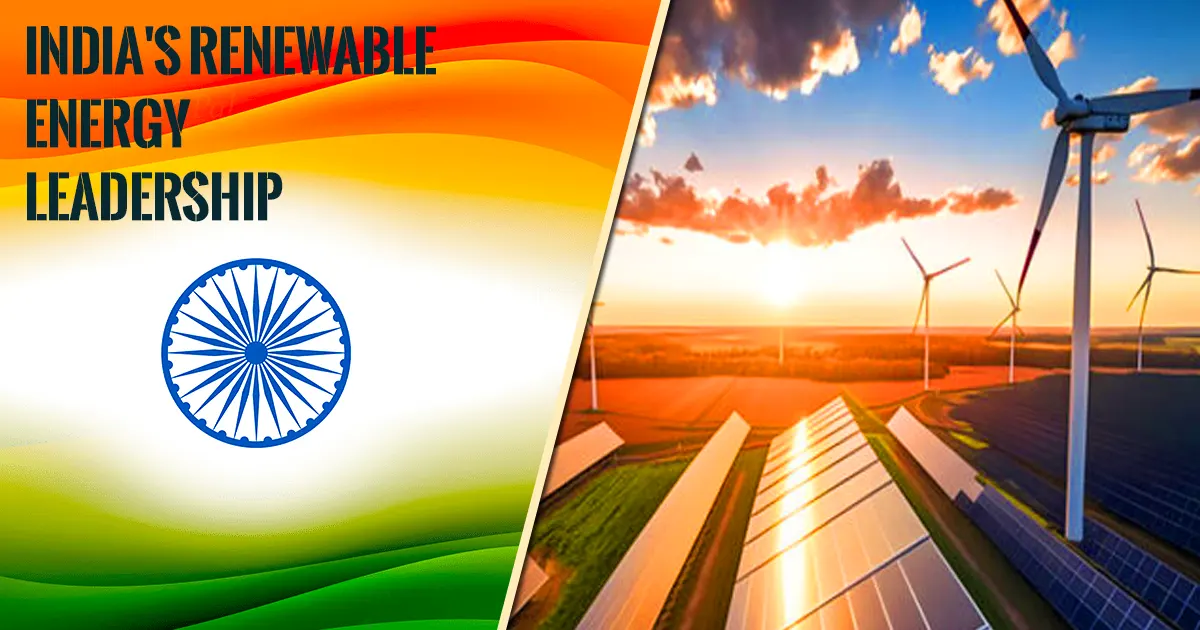GS 3 S&T

Union Minister for New and Renewable Energy, Shri Pralhad Joshi, addressed the 5th CII International Energy Conference and Exhibition (IECE) in New Delhi, emphasizing India’s progress in renewable energy and its aspiration to become the renewable energy capital of the world.
Milestones and Achievements:
- Renewable Energy Capacity:
- Added 15 GW of renewable energy between April-November 2024, nearly double the 7.54 GW added in the same period last year.
- India’s non-fossil fuel energy capacity reached 214 GW, marking a 14% increase compared to the previous year.
- 2.3 GW of capacity added in November 2024 alone, a four-fold increase from November 2023.
- Global Impact:
- Highlighted the International Solar Alliance, initiated by India, with 120 signatory countries fostering global collaboration in renewable energy.
- Sustainable Goals:
- India is the only G20 nation to fulfill Sustainable Development Goals from the Paris Climate Change Summit (2015) ahead of schedule.
- Maintains one of the world’s lowest per capita emissions, at one-third of the global average.
- Future Goals:
- Committed to achieving 500 GW of non-fossil fuel capacity by 2030.
- The drive for a Viksit Bharat by 2047 is linked to green and sustainable energy growth.
Key Government Initiatives:
- Production-Linked Incentive (PLI) Scheme:
- ₹24,000 crore allocated to boost domestic solar panel and module manufacturing.
- Solar Parks Initiative:
- Development of 50 solar parks with a cumulative capacity of 38 GW by 2025-26.
- Renewable Purchase Obligation (RPO):
- Declared trajectory up to 2029-30 to enhance renewable energy usage.
- PM Surya Ghar Muft Bijli Yojana:
- Targeting 1 crore solar installations by 2026-27, with a budget of ₹75,021 crore.
Capacity-Building and Partnerships:
- Conferences and Dialogues:
- Organized REInvest 2024 and Chintan Shivir 2024 to accelerate renewable energy sector growth.
- Plans to address bottlenecks in the sector with stakeholders in Mumbai (January 2025).
- Investment Reports:
- Launched the CII-EY Energy Transition Investment Monitor Report, fostering insights into energy transformation.
- Global Engagement:
- Invited international leaders and industries to partner with India for a green and sustainable future.
Conclusion:
India is positioning itself as a global leader in renewable energy, with innovative policies, accelerated capacity addition, and a strong commitment to sustainability. This transformation reflects India’s pivotal role in driving the global energy transition.




